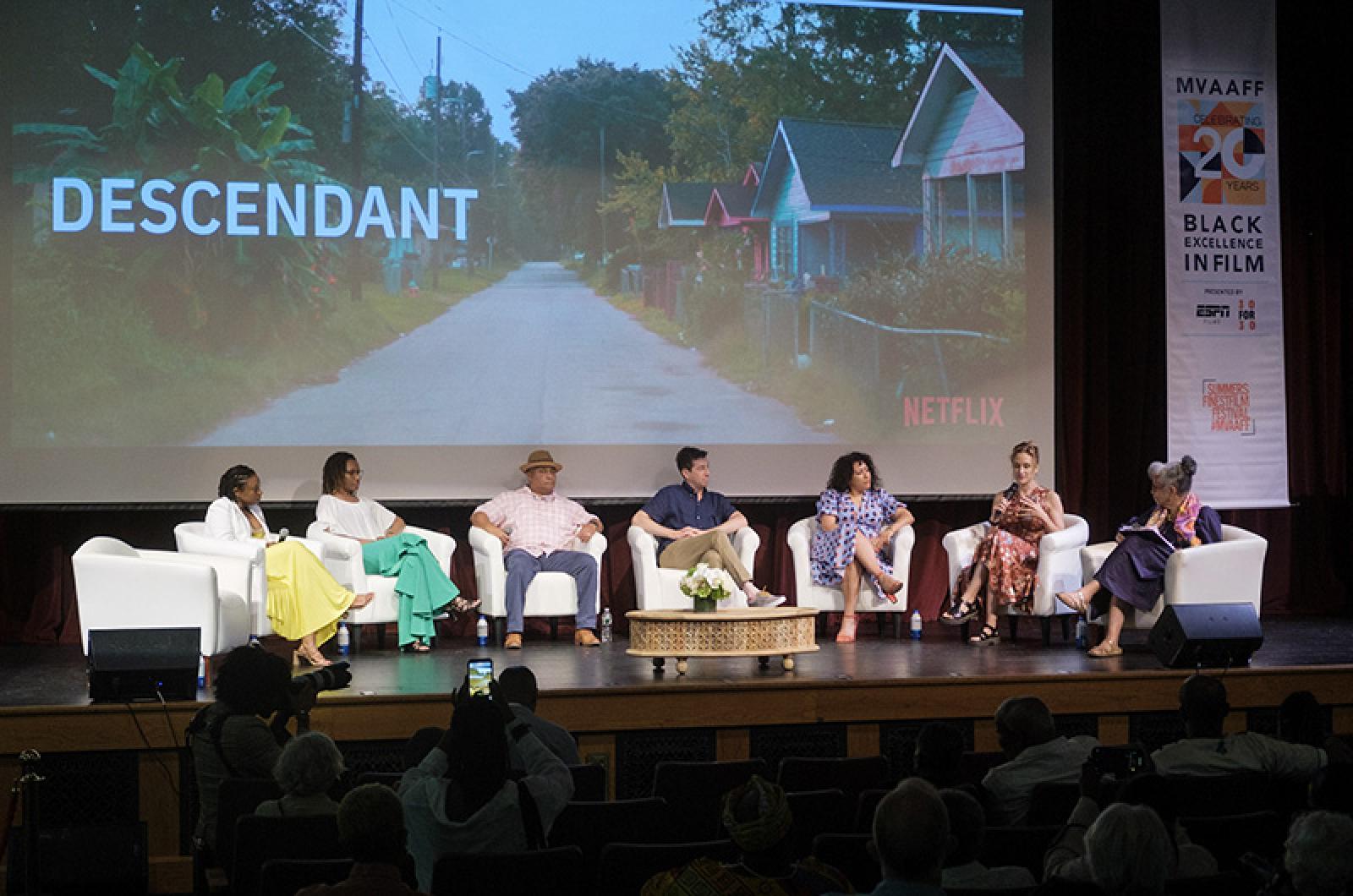The opening night of the week-long Martha’s Vineyard African American Film Festival included a powerful film screening — and a surprise visit from Barack and Michelle Obama.
“It’s wonderful to be in a room full of our neighbors and friends and people who share this magnificent Island with us,” Ms. Obama said.
After hearing from Mr. and Ms. Obama, the crowd settled in to watch Descendant, the film of the night. The film follows a group of residents in Africatown, Ala., a rural community established by former slaves after emancipation. The residents trace their lineage to a group of Africans brought to America as slaves on the Clotilda, the last known ship to import slaves after the abolition of the international slave trade.

“Descendant captures an important chapter in our history and one that’s too often been distorted or forgotten,” Mr. Obama said. “We are honored to stand alongside the people of Africatown.”
Directed by Margaret Brown, the film premiered at the Sundance Film Festival and is scheduled to be released on Netflix later this year. Higher Ground, a production company started by the Obamas, produced the film. The musician Ahmir “Questlove” Thompson is both the executive producer and a Clotilda descendant himself.
“In the last five years I learned of my lineage…my connection to Africatown,” Mr. Thompson said. “We’re about readjusting history and correcting history.”
Since the international slave trade was illegal in 1860, the ship’s captains covered up their crime by setting fire to the boat in the Mobile Bay. While the story of the Clotilda has been an open secret among the descendants for generations, it is largely unknown to the public. That is partially because the remains of the ship were never discovered. The film focuses on the recent efforts to uncover the ship.
Two of the Clotilda descendants featured in the film, Joycelyn Davis and Veda Tunstall, participated in a panel discussion after the film. Speaking about the efforts to erect monuments to the slaves and create a museum in Africatown to educate the public, Ms. Davis and Ms. Tunstall both acknowledged the importance of those efforts, but said the money generated them needs to be invested in the descendants.
“This film has brought a lot of attention to Africatown. We do have a seat at the table, but I want us to be at the head seat,” Ms. Tunstall.
Reconciliation is important because the effects of the Clotilda reverberate to the present, Ms. Davis said. The descendants of Timothy Meaher, one of the ship’s captains, still own large swaths of land in and around Africatown. Over the years manufacturing companies have leased land from the Meaher family to build plants that release toxic chemicals into the atmosphere. The predominantly Black population in Africatown has suffered from alarming rates of cancer as a result.
“Now it’s time to benefit from the Clotilda,” Ms. Davis said. “What do we tackle first? There’s blight, environmental injustice, our schools…We have several things to worry about.”
But the first step towards change is making people aware of the problem, which Ms. Tunstall feels the film has done.
“There has been work for a very long time, but now a light is shining on us,” Ms. Tunstall said.
The film festival runs through Aug. 13. For more information, visit www.mvaaff.com.








Comments
Comment policy »